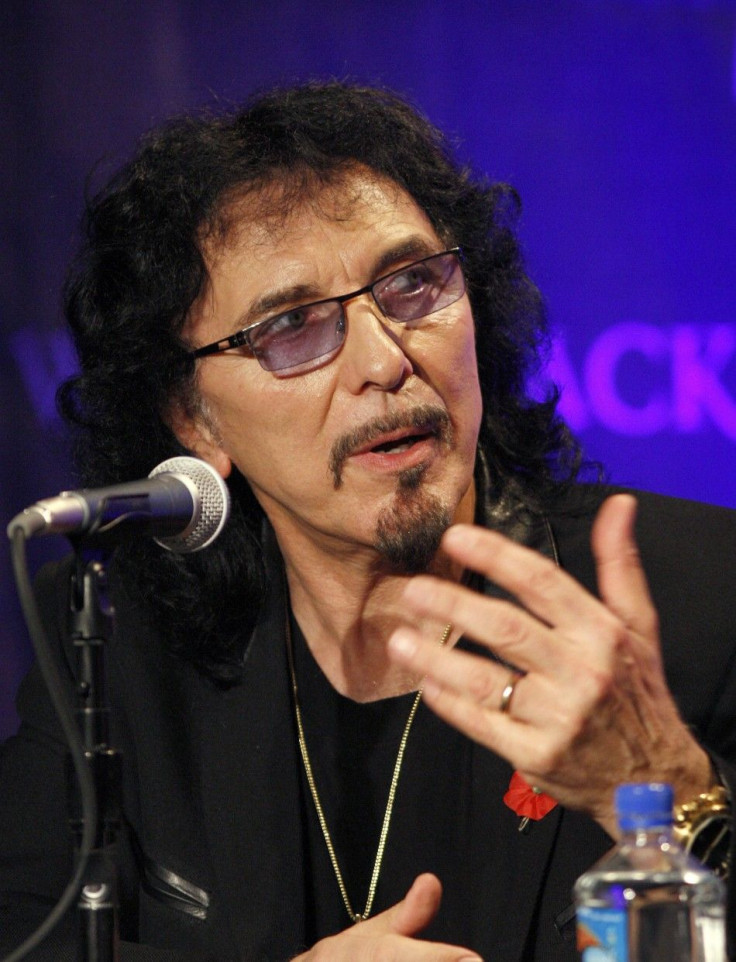Tony Iommi Cancer: How Music Therapy Gives Hope to Black Sabbath Guitarist

When Black Sabbath plays darkness is on stage. But for lead guitarist Tony Iommi on the fateful day of Jan. 9, that darkness came offstage with him. He had just been diagnosed with an early stage of lymphoma, which has a 30 percent survival rate after 5 years for Iommi's age bracket. But for Iommi, now 63, support from his fans and the drive to keep writing music help him to persevere.
In Iommi's case, music as therapy came from his signature guitar designer John Diggins. The guitars keep him occupied, which I think is important, Diggins told The Birmingham Mail at the end of Jan. He told me he wants a wall covered with them. The music craftsman made a cherry red SG guitar, a replica of Iommi's famous Monkey SG designed by Diggins in 1975, to deliver to the cancer-stricken guitar icon.
Music has been referred to as a universal language, but it might also be known as a universal medicine. In addition to providing a source of entertainment and relaxation, new technology has allowed patients to create their own music overcoming physical limitations. But music therapy isn't just for musicians. Researchers have found that it can be more than just inspirational--it can be therapeutic. Scientific evidence has shown that music and other rhythmic stimuli may even be able to heal damaged brains, according to the Stanford News Service.
Examples of its practical medicinal properties span the the country, impacting both young and old across a large variety of health challenges.
Dan Ellsey, a cerebral palsy patient born without the ability to speak, now has the ability to make his own personal music. In late Jan. The Los Angeles Times reported that Tod Machover of MIT's high-tech Media Lab designed a new headset that allows Ellsey to control tempo, volume and articulation.
Though still severely affected by his condition, Ellsey has been able to perform and record CDs through Machover's Hyperscore program.
In Charlotte, N.C., a music therapist was able to bring joy to a 6-year-old Stephanie, WCNC reported on Feb. 1. The girl, who is constantly in and out of the hospital due to Downs Syndrome and heart complications, went from crying to singing the moment the music started.
Music speaks where words can't, music therapist Lauren Sandlin said to WCNC. Those moments really charge me up and refill my battery, so to speak. It's what I work for and what I live for.
To learn more about music therapy for find a music therapist near you, check out the American Music Therapy Association at www.musictherapy.org
© Copyright IBTimes 2024. All rights reserved.






















